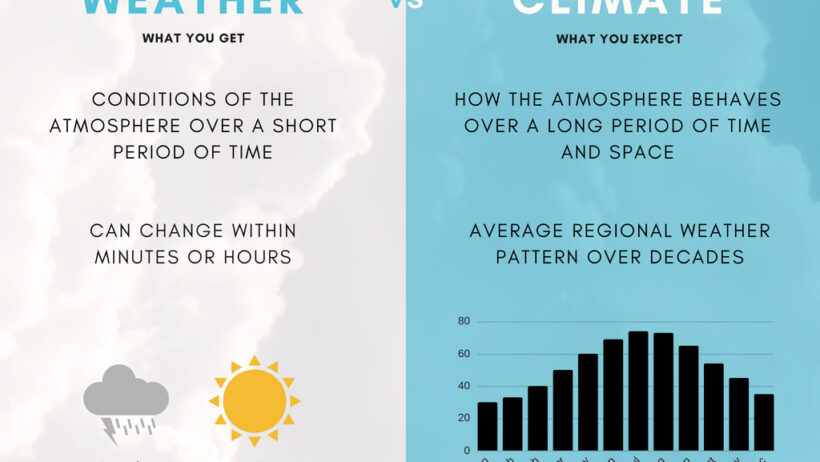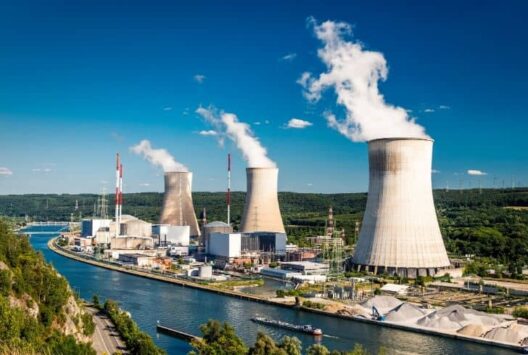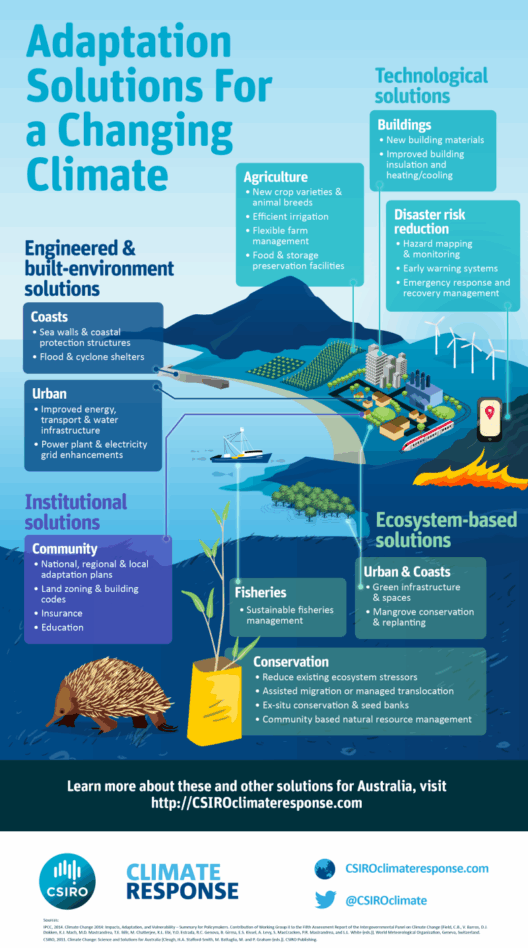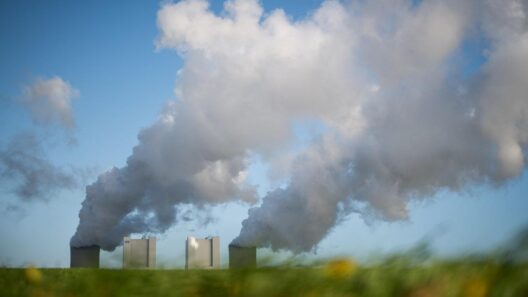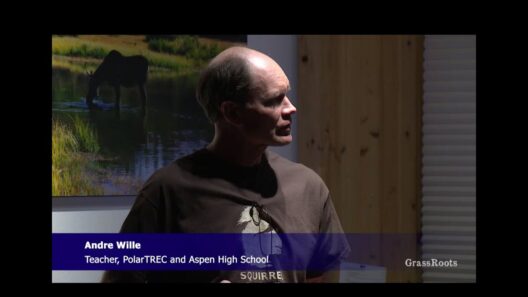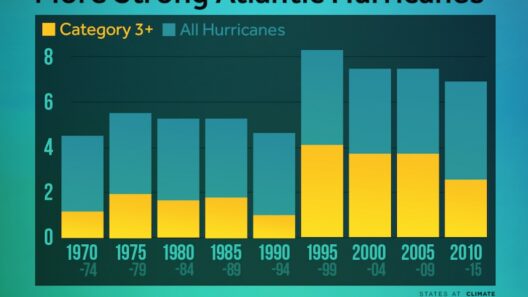When was the last time you pondered the distinct nuances between climate and weather? Most people casually conflate these two vital concepts, often neglecting the profound implications of their differences. This is not merely a linguistic exercise; understanding the nuances between weather and climate can significantly shape our perception of environmental issues, particularly in the context of climate change. To delve deeper into this, let’s dissect the intricacies and challenges of these terms through an argumentative lens.
To begin with, let us define our terms. Weather refers to the short-term atmospheric conditions in a specific place at a specific time. It encompasses variables such as temperature, precipitation, humidity, wind speed, and visibility. For instance, a sudden rainstorm on a sunny afternoon represents a weather event. On the other hand, climate is the long-term average of weather patterns in a particular region over an extended period, usually 30 years or more. It encapsulates the typical weather one might expect in a geographic area, such as the humid subtropical climate of the southeastern United States or the arid desert climate of the Sahara.
The misconception that often arises in public discourse is the failure to differentiate between these two concepts. For instance, an unseasonably warm winter day does not signal a permanent shift in the climate; rather, it could simply be an anomaly within a longer trend. This is an essential distinction to make, especially as we grapple with the realities of climate change. If such variances in weather were mistaken as indicative of climatic changes, we risk underestimating the urgency of ongoing global alterations.
Consider the playful question: Can a single warm day in February declare the end of winter? As absurd as it may sound, this scenario reflects a prevalent mindset that dismisses misconceptions across public discourse. Let’s change the narrative. It is critical to understand that local weather phenomena can influence our opinions on climate change. For example, a particularly harsh winter can lead individuals to question the validity of climate change, while hotter summers might provoke alarm. Yet, the crucial point remains: localized variances in weather should not sway our long-term understanding of climate trends.
This presents a formidable challenge. In an era dominated by instantaneous news cycles and social media, we are inundated with data points and weather events that can obscure our grasp of the big picture. The portrayal of climate change often focuses on bizarre weather incidents rather than the systematic changes we must confront. It polarizes society, leading to misinformed debates fueled by emotions rather than facts. Therein lies the challenge; how do we cultivate a society that comprehends the nuances and respects scientific consensus over emotive anecdotes?
Another aspect worth considering is the geographical disparity in the perception of climate change. In places where extreme weather events frequently occur, individuals may become desensitized to talk of climate shifts, regarding them as normative. Conversely, regions less affected by such phenomena may struggle to recognize their susceptibility to the far-reaching effects of climate change. As such, there exists a responsibility to communicate these concepts more effectively, elucidating the notion that while weather can fluctuate with whimsy, climate extends beyond our day-to-day comprehension, demanding a broader temporal perspective and deeper understanding.
Furthermore, the implications of conflating climate with weather are not merely academic; they are profoundly ethical. As societies endeavor to implement policies addressing environmental issues, a misunderstanding of these concepts can foster insufficient responses to the climate crisis. Legislators may attribute climate events to fluctuations in weather when the reality showcases a pattern indicative of climate change. Consequently, policies might lack the urgency or direction required to effectively combat this critical global challenge. Acknowledging the distinctions between precise terminology can empower us to champion informed discourse and action.
Pragmatically, how can we address these misunderstandings and catalyze action? Education stands as a vital cornerstone. It is imperative to cultivate a curriculum that emphasizes the scientific rigor behind climate studies, encouraging critical thinking rather than passive acceptance. Informational campaigns should educate the public about the differences, utilizing relatable analogies and data visualization to clarify how climate trends emerge from an aggregate of weather events over time.
Moreover, individuals and communities must foster dialogue. Open discussions inviting diverse perspectives will elicit a broad range of insights, facilitating a fundamental understanding of climate versus weather. Engaging in public forums, workshops, and even casual conversations can characterize a significant shift in societal awareness.
Ultimately, understanding the distinction between climate and weather is not merely a scientific endeavor; it has real-world implications that extend into our ethical responsibilities as stewards of the planet. The optimization of public understanding, fueled by education and dialogue, can shape a more informed society equipped to confront the growing challenges of climate change head-on. In an age where misinformation helps forge polarizing divides, clarity in our understanding may be one of the most critical tools at our disposal. Thus, it is our collective responsibility to engage with these concepts thoughtfully and proactively, ensuring that the discourse surrounding our environment embodies both accuracy and urgency.



